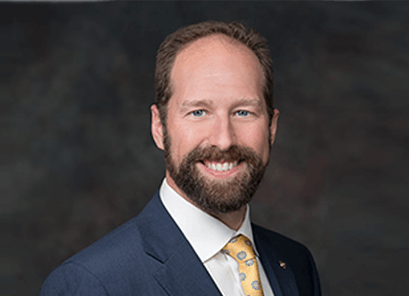How To Find Out What Really Matters To Your Clients
Micah Shilanski, CFP®, shares his tried and true methods for uncovering what really matters in your clients’ lives so that you can help them reach their dreams.
4.3 min read

Financial Planner, CFP®
Your relationship with your clients is far more important than their relationship with their doctor.
Don’t believe me?
Try this test from Nick Murray: ask your retired clients if they would rather die tomorrow or ask their children for money because they ran out.
Every client will respond, “I don’t need to wait until tomorrow. Kill me now.”
Your clients have spent their entire lives saving, so they will never be financially dependent on anybody else. Our ROI as advisors can’t be stressed—you are the most important professional in your client’s lives.
The best way for you to do your job is to know your clients and be more interested in their success than anyone else in their life has ever been. However, most advisors are making big mistakes and missing out on opportunities to be their client’s biggest supporter.
I want to turn that around.
Every time you walk into a meeting, you have the potential to change lives, but you must do these three things so you can make their dreams happen.

The most important thing you can do
The most important thing you can do to build relationship capital happens way before you ever enter the conference room. You have to practice the hell out of your client presentation.
You need to know your script so well that you can run through your value adds and meeting agenda even if you were awakened from a dead sleep in the middle of the night.
Novice advisors think this kind of preparation is overkill. But it’s not—it’s absolutely vital, and here’s why.
You can’t listen to your clients if your brain is focused on what you need to say next. When you don’t know your script, you will pay far more attention to your words than your client’s needs.
You won’t be present in the meeting when you’re focused on what comes next. You’re going to miss what the clients are saying. You’ll miss those subtle cues that they are trying to share important details with you.
Remembering the details your clients share is how you show you care. If you want to be anything more than a mediocre advisor, you must remember (read: add to the CRM) that their dog is named Polly, and their second daughter, June, who lives in Italy, just had a baby.
But it’s not enough to simply pay attention to those tidbits; you must also learn how to draw out more of them to discover what matters to your clients.
How to draw out the details that matter
To be a solid advisor, you should understand what each client is passionate about because your planning will revolve around these things.
But how do you do this?
During the opening of my meetings, I usually take a few minutes to chit-chat with my clients. This helps them feel more comfortable and lets me tease out life events or other things that matter to them.
One of the questions I love to ask is:
What is new and exciting in your life?
Notice how I don’t ask if there was anything new or exciting—that’s a closed-ended question. I ask what is new and exciting, then lean back to give my client room to answer.
Sometimes, I’ll get a “No, Micah, there’s nothing exciting or new to share.” that’s okay.
But I want to invite them to share their big news with me. Maybe their daughter will get married over the summer; they want to book a trip to Europe or buy a new car.
These things matter because money will massively facilitate the client’s ability to do them. And knowing about the exciting news will be important when I’m backing into the money side of our relationship.
After we chit-chat, I dig into the meeting by inviting my client to share aspects of their financial situation that keep them up at night.
Mr. and Mrs. Client, I have several things I’d like to talk to you about today, but before we get started, please tell me what questions and concerns you have.
When the client shares their questions and concerns with me, I write them down on my homework sheet and repeat the questions back just as I heard them.
So if my client Bob says he has a qualified charitable distribution he has to make every year and wants to understand how that works, I will phrase his question back to him just as I heard it.
Later, we’ll discuss how that charitable distribution will fit his plan, and I’ll further educate him. But right now, I want to emphasize that I heard Bob.
What else?
I learned from my CPA to dig even deeper into what’s happening in my client’s lives by asking, “What else?” three times.
This takes a tremendous amount of courage as an advisor. You’ll have to sit through awkward silences while your clients chew on that question.
If you think only asking “What else?” twice is enough, you’ve never used this strategy.
You see, those more profound things usually come to the surface after the third “What else?”.
Micah, I wasn’t going to tell you this, but I feel I need to share that I was just diagnosed with stage four liver cancer. I haven’t even told my children yet.
My client may choose to keep her diagnosis confidential—and she has every right to do so—but her medical prognosis will seriously impact our planning strategy.
Had I never asked that third, “What else?” I may have never known what was going on in Sue’s life.
You may discover other details after the third “What else?” that are less severe and more fun, such as:
Micah, I really want to buy this investment property, but I’ll need $250k, which may mess up my plan.
I really want a new truck. Could we make this work?
You’ll never know what your clients are truly passionate about unless you go through this process.
Like so many other things we do, asking “What else?” three times sounds super easy until you’re looking your client in the eye.
But I can guarantee that if you’re willing to sit through the discomfort, you’ll build a stronger rapport than you thought possible.
Popular Topics
Value Adds
If you are routinely providing clients with value adds in a consistent, efficient, and deliverable
Still Holding Out on Surge™? 2023 Could Be Your Year
Micah Shilanski, CFP®, busts myths and misconceptions surrounding Surge meetings and shows how
5 Questions Every Advisor Should Ask
Matthew Jarvis, CFP®, answers five essential questions every advisor should ask to transform
Stop Stressing About Raising Fees – We’ve Got You Covered
Raising fees can feel nerve-wracking—palms sweaty, mind racing, worrying if clients will walk
Like Coke from a Coffee Mug: Run Your Best Client Meeting
Client meetings can be a dreaded part of a routine or you and your clients’ favorite part of your
What You Should
READ NEXT
So What, Exactly, Is The Perfect RIA?
Micah Shilanski, CPF®, shares how The Perfect RIA transforms the financial planning industry by providing financial advisors with a real-world formula for
Still Holding Out on Surge™? 2023 Could Be Your Year
Micah Shilanski, CFP®, busts myths and misconceptions surrounding Surge meetings and shows how powerful this concept can be for any financial
Personal Connections Matter, Here’s How To Build Them
Advisors often get caught up in the day-to-day processes of their practices and forget that they significantly impact their client’s lives in many ways.
Start the change today!
Get our 3 most popular power sessions FREE. You and your team will learn about: Time Blocking, the One Page Financial Plan, and the “Buckets of Money” approach.



